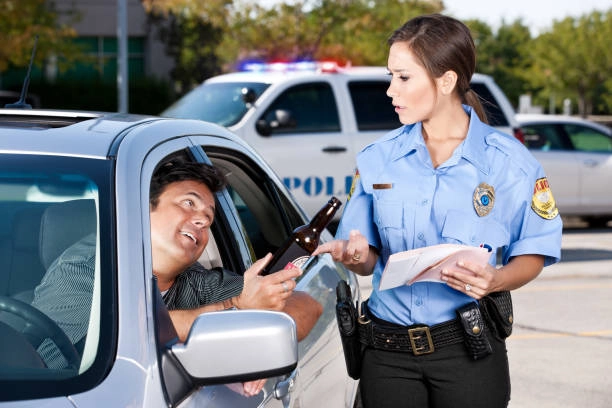DUI Charges: Know Your Legal Rights and Defense Options
Your Legal Rights When Facing DUI Charges
If you are charged with a DUI, it is important to be aware of your rights, which can significantly impact your case:
- Right to Remain Silent – You are not required to answer law enforcement questions without legal representation.
- Right to an Attorney – You can consult a DUI lawyer to help you navigate the legal process.
- Presumption of Innocence – The prosecution must prove your guilt beyond a reasonable doubt.
- Right to Challenge Evidence – You can dispute breathalyzer or field sobriety test results if they were not conducted properly.
- Right to a Fair Trial – You have the opportunity to present your defense, call witnesses, and cross-examine prosecution witnesses.
Why Knowing Your Legal Rights Matters
DUI charges carry serious consequences such as fines, license suspension, and jail time. Being informed about your rights helps you:
- Make well-informed decisions throughout the legal process.
- Recognize when law enforcement procedures are violated.
- Challenge improper evidence that could weaken the prosecution’s case.
- Develop a strong defense strategy with the help of a legal expert.
Common Defense Strategies for DUI Cases
When facing DUI charges, you have several defense options depending on your case specifics:
1. Challenging the Traffic Stop
- If the officer did not have probable cause to pull you over, evidence collected during the stop may be inadmissible in court.
2. Questioning Breathalyzer Accuracy
- Breathalyzers can provide inaccurate readings due to improper calibration or human error.
- Your lawyer can challenge test reliability if the device was faulty.
3. Medical Conditions as a Defense
- Conditions like diabetes or acid reflux can falsely elevate blood alcohol levels.
- Providing medical records can create reasonable doubt.
4. Field Sobriety Test Errors
- These tests are often subjective and affected by factors like poor lighting, uneven surfaces, or physical impairments.
- If tests were not conducted correctly, results can be disputed.
5. Rising Blood Alcohol Content (BAC)
- Alcohol levels may increase after drinking, meaning your BAC might have been below the legal limit while driving.
- This defense requires expert testimony and careful case presentation.
6. Lack of Intent to Drive Under the Influence
- If you were parked or had no intention of driving, this argument may be used in your defense.
7. Negotiating a Plea Deal
- If the evidence against you is strong, your attorney may negotiate reduced charges or penalties.
Ready to connect with top legal professionals? Get immediate support— Call us at 877-550-8911.
Connect with Our Legal Team

Steps to Take After Being Charged with a DUI
Dealing with DUI charges requires a strategic approach. Here’s what to do:
- Remain Silent – Do not admit guilt or provide statements without legal representation.
- Consult an Attorney – A DUI specialist can guide you through your case.
- Understand Your Charges – Review the charges against you and potential penalties.
- Gather Evidence – Secure witness statements, medical records, and any video footage that may support your case.
- Attend All Court Hearings – Missing court appearances can lead to additional penalties.
- Follow Legal Advice – Your attorney will provide the best defense approach for your situation.
The Role of Evidence in DUI Defense
Strong evidence can help dismiss or reduce DUI charges. Important factors include:
- Breathalyzer & Sobriety Test Validity – Was the test conducted correctly?
- Police Reports – Did the officer follow proper arrest procedures?
- Witness Statements – Can someone verify your sobriety?
- Video Footage – Is there surveillance or dashcam footage that contradicts police claims?
- Medical Records – Do health conditions impact breath test results?
Your attorney can review the evidence to determine if any of it can be challenged.
DUI Sentencing: What Are Your Rights?
If convicted of a DUI, you still have rights during sentencing, including:
- Legal Representation – Your attorney can argue for reduced penalties.
- Presenting Evidence in Your Favor – Proof of good character, rehabilitation, or errors in the prosecution’s case can influence sentencing.
- Right to Appeal – If legal errors occurred, you can appeal the conviction or sentence.

How to Find the Right DUI Attorney
Hiring the right lawyer is critical to defending against DUI charges. Here’s what to consider:
- Experience in DUI Cases – Look for attorneys specializing in DUI defense.
- Reputation & Reviews – Read client testimonials or ask for recommendations.
- Legal Strategy – Discuss defense options and potential case outcomes.
- Fees & Payment Plans – Understand costs before committing.
Key Questions to Ask a DUI Lawyer:
- How many DUI cases have you handled?
- What defense strategies would you recommend for my case?
- What are the potential outcomes I should expect?
- Will you personally handle my case or delegate it to someone else?
- How do you charge for your services?
Frequently Asked Questions (FAQs)
1. Can I refuse a breathalyzer test?
Yes, but refusal may lead to automatic license suspension and additional penalties, depending on your state’s laws.
2. What happens if I’m convicted of a DUI?
Penalties vary but may include fines, license suspension, mandatory DUI education programs, probation, or jail time.
3. Can a DUI charge be dismissed?
Yes, charges can be dismissed if law enforcement violated procedures, evidence is unreliable, or your rights were infringed.
4. How long does a DUI stay on my record?
This depends on state laws. In some states, a DUI remains on your record for years, while in others, you may be able to get it expunged after a certain period.
5. Can I still drive after a DUI arrest?
You may receive a temporary driving permit, but license suspension could follow. Some states allow restricted licenses for work or essential travel.
6. What is a plea bargain in a DUI case?
A plea bargain involves negotiating with the prosecution to reduce charges or penalties in exchange for a guilty plea.
7. Does a DUI always result in jail time?
Not necessarily. First-time offenders may face fines, community service, or probation instead of jail. Repeat offenses often lead to harsher penalties.
Don’t wait to secure the legal representation you deserve. Visit Legal Case Review today for free quotes and tailored guidance, or call 877-550-8911 for immediate assistance.





